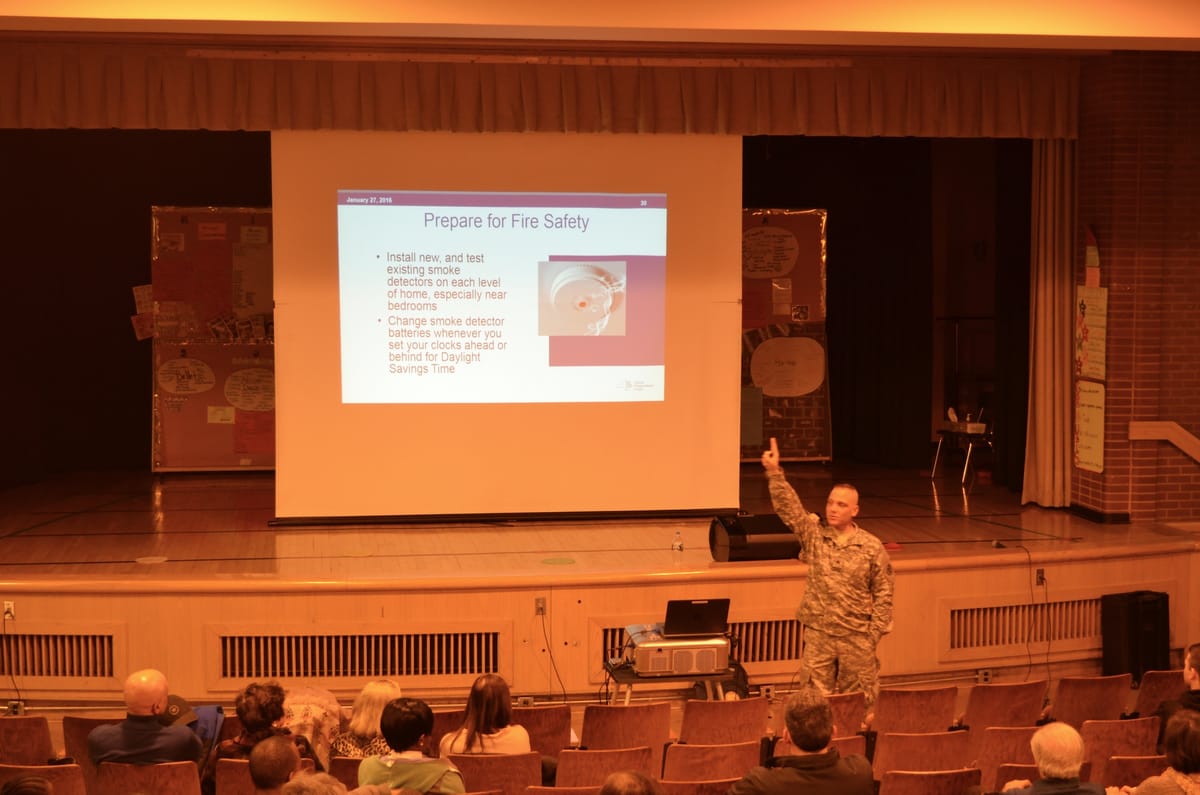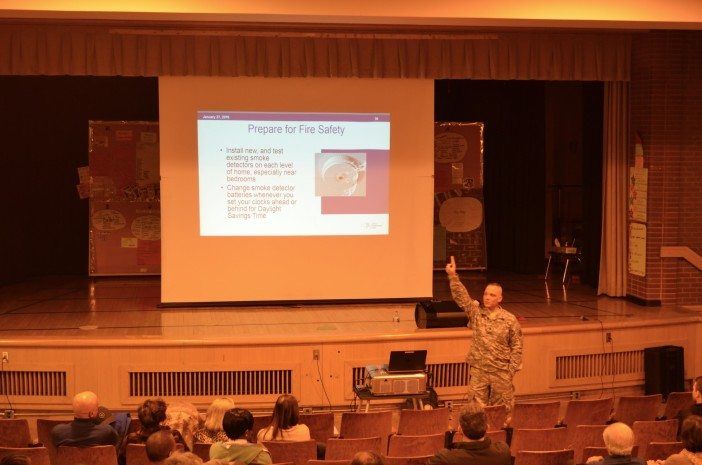Army Sergeant Gives Terrifying Presentation On How To Prepare For A Disaster


“My job is not to scare anybody. I’m just here to give you a kick of reality,” Army Sergeant Gaspar Teri shouted at a crowd of about 150 people gathered in the auditorium of PS 195 on Wednesday night. “And the reality is that [New York is] at the highest potential out of all 50 states to have an issue during a disaster.”
Teri explained that New York’s vast infrastructure, involving many bridges, subways, and trains, creates more opportunities for things to go wrong and for people to be stranded without the services they normally rely on.
“This whole thing is about being proactive,” Teri said of his presentation. “By you being proactive, you can help out yourself, and by helping out yourself you can help out your family and you can help out your neighbor, and by helping out your neighbor you are helping out one more person in your community who is not going to need additional resources.”
The army combat medic, who said he has served three tours oversees and was involved in the recovery effort after Hurricane Irene, was giving his presentation for the Citizen Preparedness Corps — an initiative by the state that provides training on how to ready for future emergencies. Wednesday’s event was scheduled by the Manhattan Beach Community Group, which has long been working to raise awareness in the community about how to prepare for future Sandy-sized storms.
Teri said the first step to preparing for an emergency is to have a plan. He emphasized the plan must be communicated to everyone in your household.
“I am a command-and-control personality. If my babysitter doesn’t understand the plan and knows where to meet me after an emergency, I’m going to find a new babysitter,” he said.
Teri also underlined the importance of accounting for every member the family — even the ones who aren’t human.
“Take your pets with you. I don’t care if it’s a goldfish. You put it in a cup to go,” he said while strutting at the front of the room in his military fatigues and combat boots. “My bread and butter is to kick open doors and search places. What I don’t want is to kick open your door and meet your pet Sparky — a one-hundred-and-fifty pound pit bull you forgot to feed for four days and I’m the first thing he sees.”
Good planning is the key to making it out of a disaster, Teri said. Residents should know whether they live in a flood zone and where the nearest evacuation center is located. (The evacuation center for southeast Brooklyn is Franklin D. Roosevelt High School at 5800 20th Avenue.) Those who attended Teri’s presentation received a “go bag” on their way out, which included a flashlight, first-aid kit, water and food rations, and other supplies. The contents of the go bag were just a starting point and Teri had plenty of other items he recommended people stock up on to prepare for an emergency.
One necessity Teri urged his audience to put in their bag: hygiene products..
“In an emergency situation, when you feel clean you feel a little better. That’s just the way it is,” he said.
Another essential item recommended by Teri is duct tape, which was included in the go bag.
“Duct tape will work in a pinch if something is broken. I’ve seen it used on aircraft carriers for F-14s. We called it 100 mile-an-hour tape,” he said.
Teri was an encyclopedia for all kinds of practical advice. For instance, he suggested storing pictures on a flash drive that goes with you during an evacuation. Doing so will preserve your cherished family photos and also provide you with evidence for insurance companies when you try to get reimbursed after a storm. Something that happened to many of the victims of Superstorm Sandy.
“A picture may be worth a thousand dollars to you,” he explained. “Now you can say: ‘That crack did not happen before the storm. It happened after. I have proof.”
Ultimately, the purpose of the lecture was to spread greater awareness about the importance of being prepared for the unexpected. Teri said he has more than 20 events scheduled for February and the state is able to provide an interpreter for him in almost any language. Though some of the sergeant’s colorful turns of phrase are likely to be lost in translation.
“We’re part of a community. We all help each other. That’s what being prepared is all about,” he said.
To get Sergeant Terri to give a presentation to a group you’re involved with, email him at gaspar.teri.mil@mail.mil.




